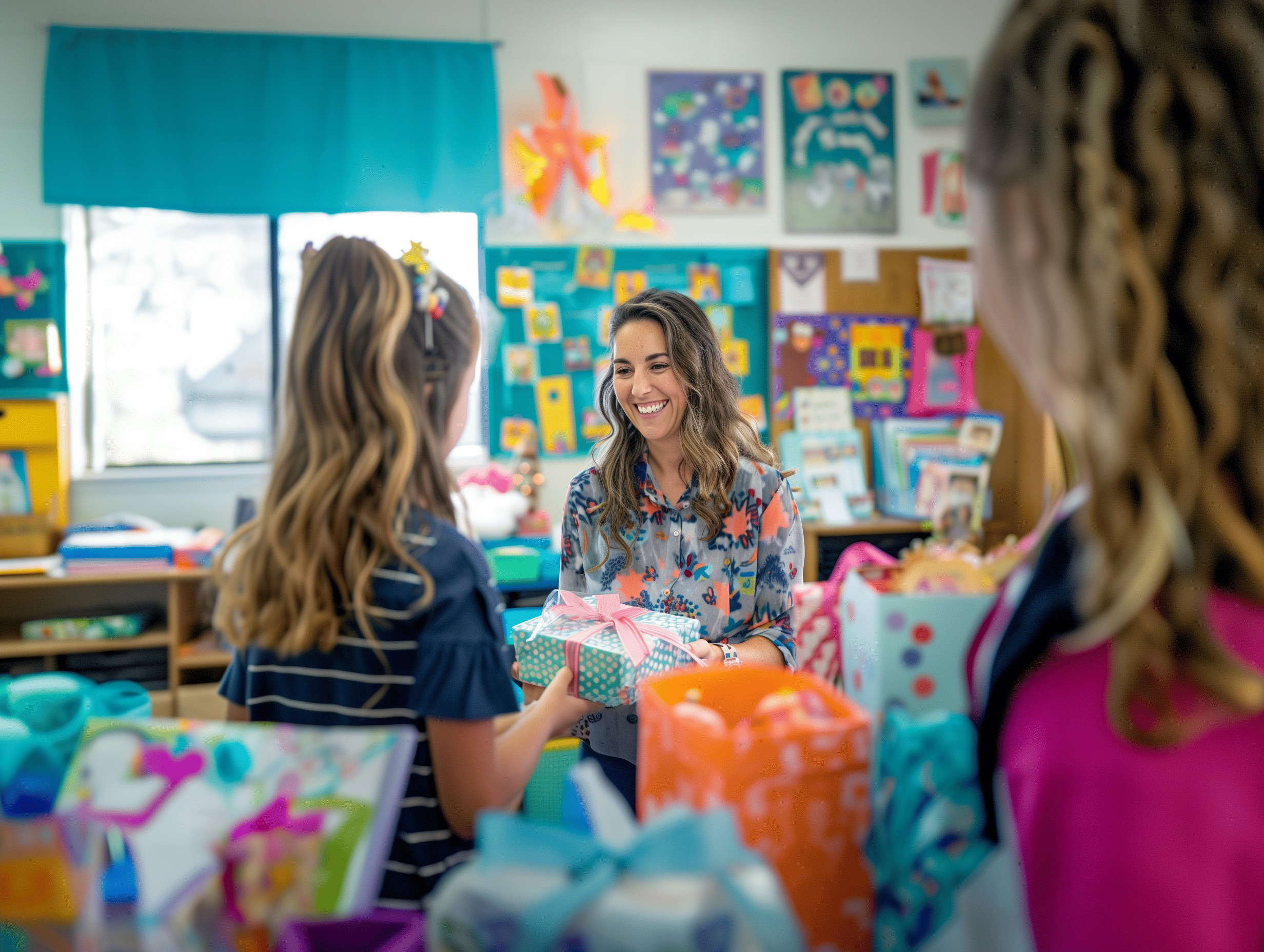Differentiated Instruction and Brain-Friendly ClassroomsA Corwin Press Teacher's Workshop Conference Series
Conference Description This is a different type of conference! This conference presents practical classroom strategies to differentiate instruction in brain friendly classrooms. This conference features many nationally known authors and presenters presenting the most recent scientific advances for immediate classroom implementation that can transform the classroom into an exciting, interactive learning center. Our extended, intensive sessions facilitate an "interactive workshop approach" rather than the more traditional 50 to 90 minute presentation, and each session is facilitated by a leader in the field. Teachers, principals, curriculum directors, and other educators will benefit from the many session choices. Further, various opportunities to meet other educators on the cutting edge, and structure a long term "learning community" focus are provided. Don't miss this exciting opportunity!Presenters and Sessions (Please note: Because of prior commitments, several speakers are presenting at only one conference in the series. See notes below for each presenter.) Carolyn ChapmanKeynote: Differentiated Instruction in A Brain Friendly Way Today's classroom requires educators to meet the diverse challenges of all students. To meet those challenges, educators are establishing brain compatible classrooms, and they are using differentiated instruction. Without differentiation, individual needs and unique talents are often not tapped and a cap is put on potential. With differentiation, teachers can lead students to take responsibility for their learning by being fully accountable, personally engaged, and actively immersed in experiences of their choosing. In its brain-friendly way, differentiated instruction creates designs for learning tasks and assessment tools that are interesting, relevant, meaningful, authentic, and powerful. As we know, one size doesn’t fit all and one tool doesn’t fit all. As educators, we are still facing great dilemmas today: the conflict between teacher and student goals, between standardized testing and authentic assessment tools, and there is always more to learn than time to learn. But we do know that a hands-on, stimulating, brain-friendly classroom environment can make content come alive with meaning and purpose. Differentiated learning can spark the students' desire to know more and help pave the pathways of their personal learning journeys. Differentiated Instruction in Reading Many students in middle and high schools do not comprehend what they read. We know that there is no magic formula to use in developing effective, comprehending readers, but teachers can use specific reading gimmicks, tips, and tricks to create just enough magic in students’ daily work assignments to give them successful reading experiences every day. This session will cover reading skills and strategies to teach phonics, word attack skills, vocabulary development, and comprehension using content materials. These skills can give students the tools they need to interpret, retain, recall, and apply information in all subject areas. With the right tools, all students can become effective and comprehending readers, eager to open their textbooks. This session will enable you to enrich the reading opportunities of your fluent readers and to give your struggling readers and non-readers the gift of reading.
Differentiated Instruction in Writing Writing tools enhance thinking and learning, and writing is today’s active form of communication, with new electronic tools including emails, messaging, and faxes. Students must know how to write. It is essential for their success. This session will provide writing strategies and activities that can assist students as they process information for long-term memory, test success, and everyday applications. Topics will include the latest research from early intervention through adult literacy; ways to create a classroom climate conducive to good writing; ways to assess, diagnose, and prescribe solutions to barriers to writing; and ways to implement both formal and informal writing processes across genres and content areas. Teachers can be encouraged to teach subject information while also developing learners who are successful, confident, and enthusiastic writers. William N. BenderDifferentiated Instruction and Inclusion: Training Others For Differentiation (A Pre-conference session). This session and the subsequent “idea sharing” session will focus on how differentiation of instruction serves as the basis for an effective model for inclusion. A “Train the Trainers” model will be used as participants explore strategies to teach their respective school faculties how to implement differentiation as the basis for inclusive instruction. Collaborative tactics for lesson planning of differentiated lessons in the inclusion classroom will be presented, including cubing, tiering, and concept webbing. Differentiation In Math This session explores the implementation of differentiation in the elementary math class. A differentiated math lesson will be described as an example of how to develop differentiated tactics in math. Use of brain friendly instructional techniques such as songs, chants, and movement will be demonstrated. Differentiated Instruction and Reading Tactics to Leave No Child Behind
Differentiation tactics for reading instruction will be
presented, based on the most recent research on brain performance
during the reading process. Strategies for planning a
differentiated lesson in reading will be presented, as will various
brain friendly tactics for reading instruction, including
text-lookback strategies, repeated readings, choral reading, and
various learning strategies for reading comprehension.
Lynn EricksonBrain-based Teaching and Learning: Shaping the Conceptual Mind Educators concerned with meeting academic standards with instructional integrity value brain-based curriculum and instruction models. Learn how to create a synergy between the factual and conceptual levels of thinking to avoid the “inch deep–mile wide” curriculum and instruction syndrome. See why most traditional instructional activities fall short, and learn how to make slight adaptations to shape the deeper, conceptual mind. Are you concerned that students seem to forget too much of what they have been taught? Or that they don’t really understand the important concepts behind the facts? This practical, interactive, workshop for K-12 teachers and administrators provides concrete examples for different subject areas and levels. Learn how to take the high road with standards (and consequently raise scores) by shifting from coverage-based to brain-based teaching and learning. Integration of Thinking: The Key to Deep Understanding and Transfer of Knowledge Let’s explode the myths and examine the truths of integrated curriculum K - 12! This session clarifies the meaning of integration and demonstrates that the real goal is the “integration of thinking” at a level where knowledge transfers and students see clear patterns and connections. Learn how to use a “conceptual lens” to focus and integrate thinking in units of study. See how to protect the integrity of units: and how to develop integrated thinking through “intradisciplinary” (within - discipline) units. Learn how to write powerful enduring understandings and guiding questions to differentiate for different ability levels. This session shows how to scaffold your own thinking to deeper levels so that you can effectively scaffold student thinking. See how to use essential questions of different types to path student thinking to deeper levels of understanding. Marilee SprengerBecoming a Wiz at Brain-Based Teaching This user-friendly presentation discusses expert findings about brain growth, structure, and functions to help teachers and administrators foster a love of learning in all students. The more we understand about the brain, the better we’ll be able to educate it. By following the brain-based teaching principles we can create an enriched, brain-compatible environment and effectively counter such existing negative influences as stress, sleep deprivation, and poor nutrition. Come experience this session, and reflect upon the myths and mysteries of the brain, classroom environmental considerations, and the role of emotions in learning. Differentiation Through Learning Styles and Memory This session provides an essential overview of how the brain processes, stores and retains information, and how teachers can guide students in accessing this information by utilizing their individual learning styles and strengths. Participants will be given practical strategies and applications for accessing these “sensory pathways,” connecting learned content to the real world. Understand your own memory as well as the memories of your students, and the critical role of memory in learning. David SousaHelping Students Become Better Readers Through Brain Science Come to this interactive session and explore the fascinating discoveries that brain scientists are making about how the brain learns to read. Hot topics will include suggestions for deciding how to select a scientifically-based reading program (Is there such a thing?) for beginning readers as well as how to help older students improve their reading skills in content areas. Educators in both elementary and secondary schools will find practical applications of this exciting research that can help all students become more successful readers. (Dr. Sousa will participate at Virginia Beach only). Marcia TateTwenty Strategies that Engage the Brain Have teachers ever complained that their students cannot understand or recall much of the content taught after a 24 hour period? It stands to reason that if students don’t learn the way we teach them then we must teach them the way they learn! Experience 20 instructional strategies–based on brain research and learning style theory–that maximize memory and minimize forgetting. Increase learning for students when strategies like drawing, metaphor, music and storytelling are used to teach curriculum objectives and meet national standards. Explore research that shows why these strategies are preferable to others. Ensure that brains retain key concepts, not only for tests, but for life! (Dr. Tate will participate at San Diego only). Robert SylwesterCollaborative Classroom Management and the Social Brain We're a social species in a democratic society, but we individually educate and evaluate our young in a social environment that's not uniformly democratic. Periodic misbehavior and low attainment are evidence of flaws in this arrangement. This non-technical presentation will (1) explain cognitive neuroscience discoveries that relate to our brain's organization and social development, and (2) suggest how a collaborative classroom management model can enhance the group's social behavior and its understanding of cognition and democracy. (Dr. Sylwester will participate at Virginia Beach only). Pat WolfeDeveloping the Reading Brain The brain is hardwired for spoken language, yet written language serves as the primary foundation of all school-based learning. In this interactive session, participants will learn how the young brain first develops language acquisition skills, and how teachers can then use this understanding to guide students to reading mastery. Practical, take-home strategies to increase phonemic awareness, phonics, vocabulary, comprehension, and fluency will be shared and discussed, as well as interventions for your most challenged and challenging readers. Particular emphasis will be placed on preK-3 learners and classrooms. (Dr. Wolfe will participate at San Diego only). Gayle GregoryDifferentiated Literacy Strategies Explore a instructional and assessment framework designed to promote the multiple competencies their learners need: functional literacy for phonics, spelling and reading: content-area literacy for vocabulary, concept attainment, and comprehension; technological literacy for information searching, evaluation, and synthesis; and innovative literacy for creativity, growth, and life-long learning. Learn strategies to engage reluctant learners, provide what sub groups need to thrive and succeed, pre-assess diverse learners for literacy skills, competencies, learning styles, and learning gaps, and implement a broad array of high-payoff and developmentally appropriate strategies to move all students to the next stage in their literacy learning.
|



